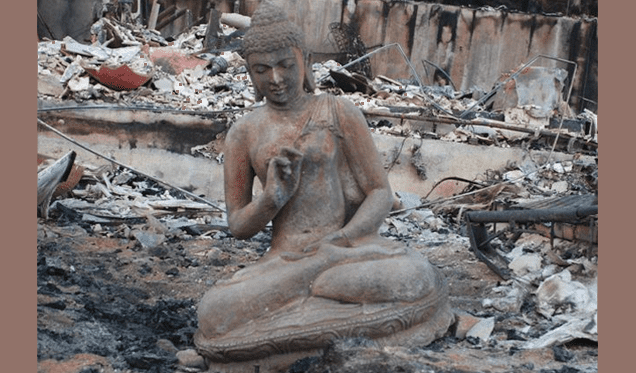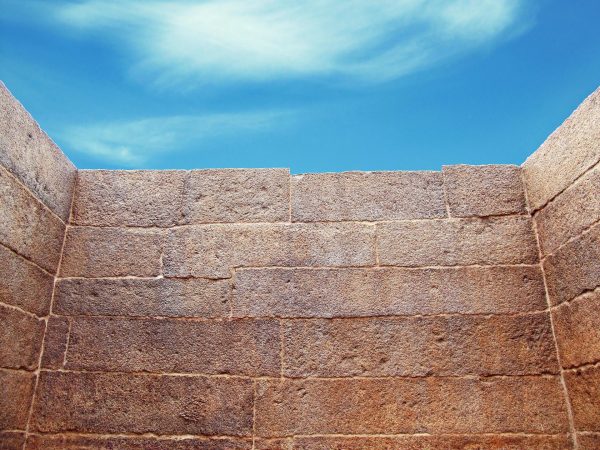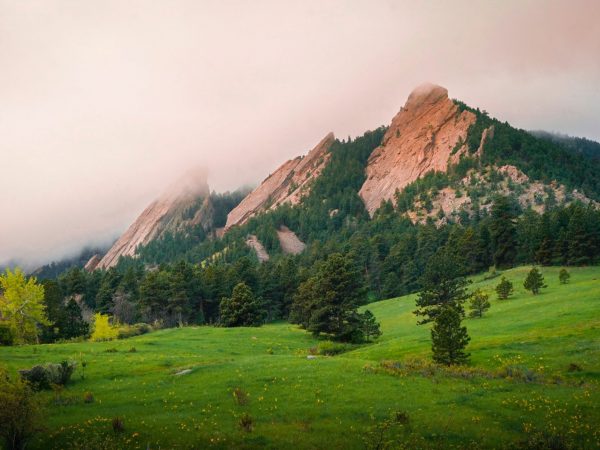I came to Buddhism through direct action, lines of truncheons, state repression, and a world of suffering crying out for a response. And Buddhism saved me from a subsuming anger and hatred for violence and its perpetrators. I am deeply thankful for that. For me though, the image of Buddhism, the symbol of the meditator, continues to be an impervious one. A seated practitioner with such strength of presence, such deep rootedness, such courage to meet whatever might arise unwaveringly, perhaps even with a loving heart, that I could place them between a line of looming bulldozers and an old growth forest and they would be unfaltering. The practice of Buddhism for me is undoubtedly a practice of warriorship. The face of the Buddha, in my mind, expresses courage, certitude, commitment; it has determination in it. And how could it not? From our first Buddhist lesson we learn about the experience of suffering, and to understand that, transform it, first we have to face it. This meeting demands not an insignificant amount of boldness.
And yet supported and appreciative as I am of the world and culture of Dharma practitioners, I often find myself wishing that we could share more of a Buddhism that looked like that. A Buddhism whose face was a little bit tougher somehow, a little more rugged. Sometimes I feel afraid that the fire for battling injustice and delusion is being lost to us.
Partly I think that happens because of the wider culture most of us find we are part of. Capitalism, and it’s championing of individualism, mean we grow among propensities for the self serving and the disconnected. Cultures of wealth and privilege often rest on the back of the exploitation and enslavement of others, human and non-human, and in the interests of their continuity, we’re encouraged to obsess about ourselves and fear the world beyond us.
Coming to Buddhism in that context means the necessity for an added emphasis on social awareness. The idea that the Buddha was enlightened so that we might reduce our stress levels and be more effective members of the economic treadmill, I find a little bit disheartening. But a path and task to liberate all things, expresses a fire and a love that inspires me deeply.
And the implications of that are radical, personally and politically, whether we like it or not. It seems so important that we don’t allow Buddhism to be coopted by current dominant discourses like consumerism and profiteering. Golden Buddha replicas made in sweat shops in China and Buddhist spa retreats for CEOs don’t seem to quite give expression to the revolutionary nature of the Dharma.
Our Christian heritage probably also plays its part. Notions of salvation, of a heaven, or indeed a Nirvana, where all will be well and the conditions for suffering ended, preferences transcendence over a more material reality. For me, practice grows out of the things I love about being alive — having a body, breathing deeply, wandering through woodlands, experiencing care for another person — for these to be cast aside as somehow base, somehow ‘of samsara’, in preference for an otherness which is considered more spiritual, cuts off the roots of practice. The ideal of enlightenment has to be embedded in life. Denying this life for an other-worldly salvation sits too close to aversion. It leads me to a feeling of passive indifference.
Sometimes I think we’re trying so hard to be good Buddhists, to be mettaful and non-violent and watchful, that we become a bit afraid of life. More and more careful with our speech, our actions, our thoughts, with deeper and deeper sensibilities and desires to walk gently on the earth, that we become smaller and smaller, quieter and quieter, reluctant to disturb, loath to impose, unwilling to assert anything based on the limitations of a self and views we’re told to mistrust as deluded. Raising our voices to shout in the opposition to injustice becomes so unlikely, so out of character and uncomfortable somehow. We begin to look a little diminished.
Buddhism cannot be at end, a denial of life. Where it is something must be going wrong. With an introverted, overly tranquil practice, I worry we get left with something that’s only relevant to ourselves, and in a complex and connected world becomes then obsolete and impotent.
Golden Buddha replicas made in sweat shops in China and Buddhist spa retreats for CEOs don’t seem to quite give expression to the revolutionary nature of the Dharma.
I love the image from the ox herding poems: The monk spends months in his cave, and then he returns to the market place with bliss-bestowing hands. And there’s a lot of courage required in that.
Withdrawal to the safety of my meditation cushion, eyes closed, warm and dark, where my practice can be on my own terms, is always going to be a temptation. And the more dire the state of the world, the more seductive the pulling back. But it seems too important that I confront that and fiercely, determinedly, with the passion and warriorship that a path of liberation demands of me, all the more for the darkness of the current state of the world. I feel called to fight, and the Dharma is my best support in that. So I side with Dylan Thomas when he presses us, “Do not go gentle into that good night. Rage, rage against the dying of the light”.
You can listen to this talk from Alex Swain here:
“The Problem of Passivity”
This article is transcribed from the ecodharma audio series, “Buddhist Reflections on Social Action” and is available on iTunes, SoundCloud and Stitcher. It is gratefully reprinted with permission from the EcoDharma Centre, a dharma centre in Spain offering “radical ecology, radical dharma.”







